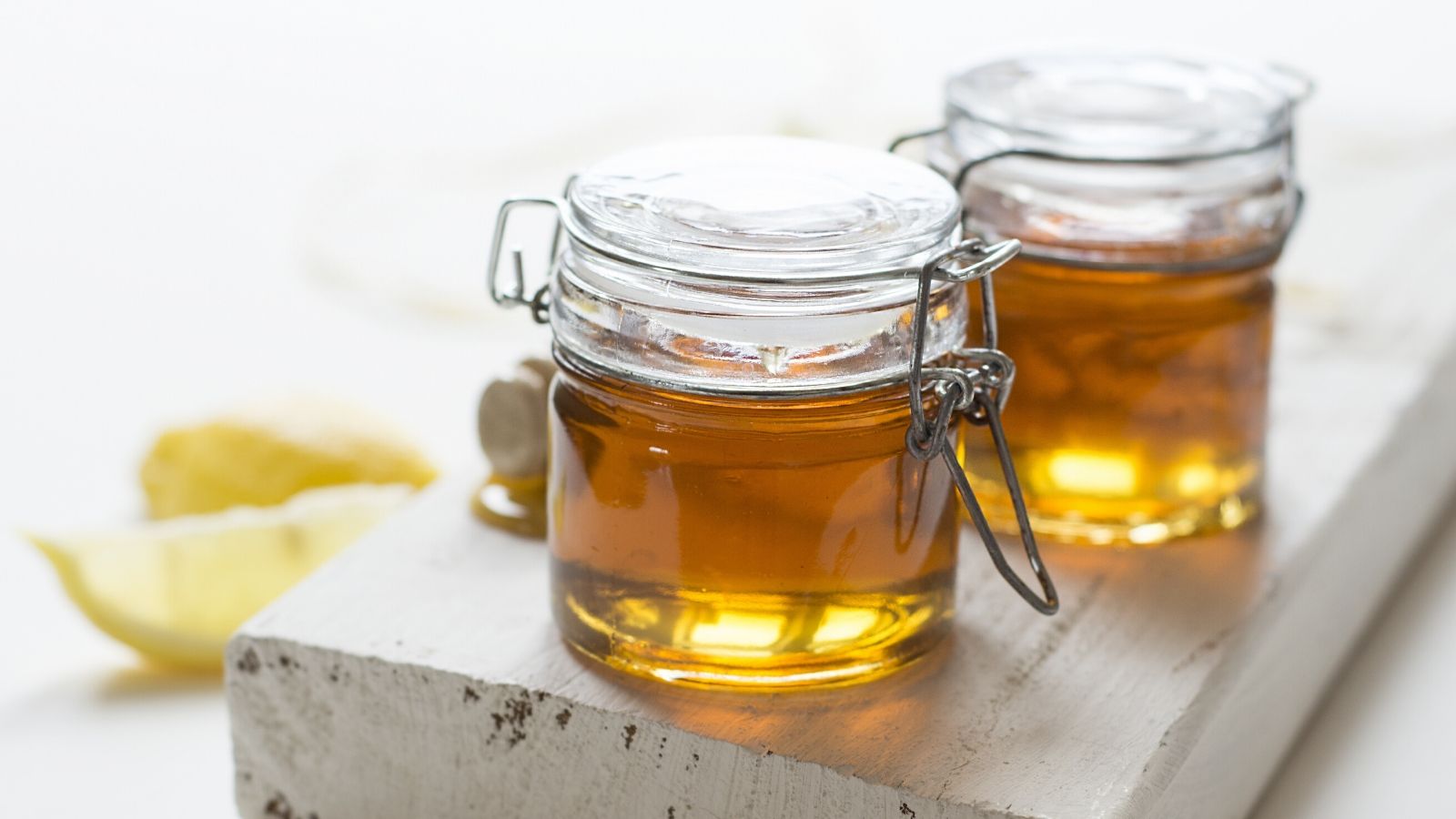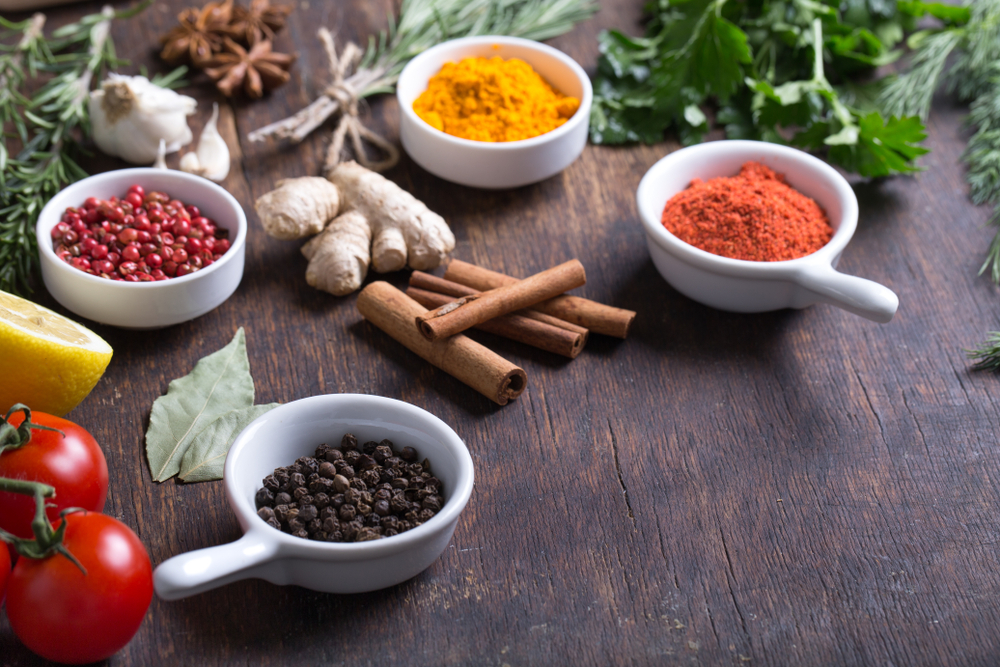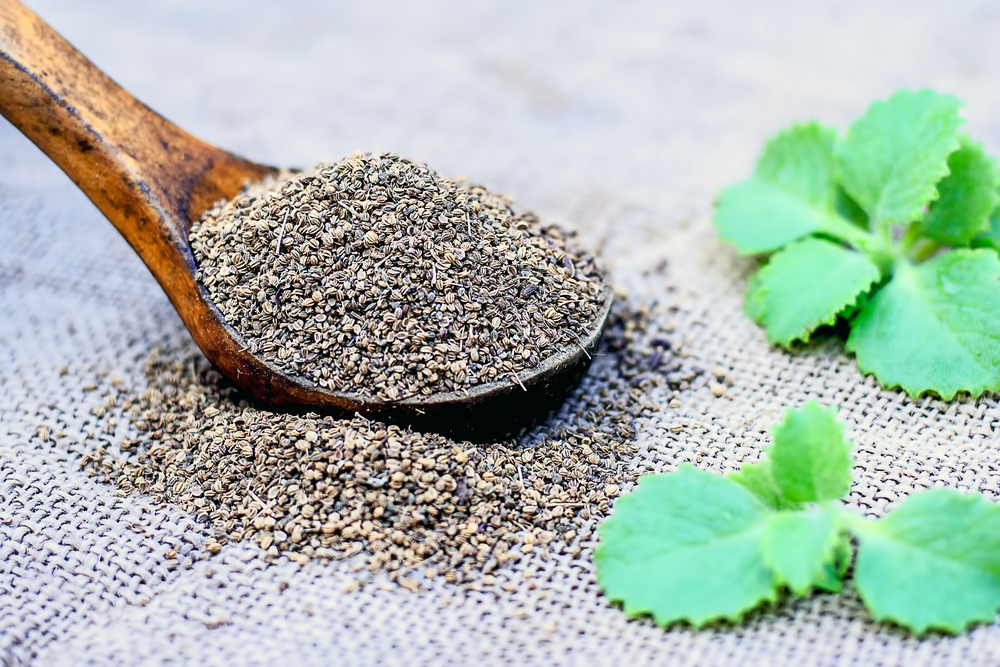Top 6 Health Benefits Of Raw Honey
Sticky, thick, golden and uber sweet – made from the goodness of fruit and flower nectar and the hard work of bees – this is none other than Honey – a nature’s medicine in its truest form that has been used since ancient times. It was firstly attracted by its sweet taste, and subsequently by the medical properties that have been attributed to it throughout the ages.
Composition of honey:
From a chemical point of view, honey is considered a supersaturated solution of sugars, with fructose (38%) and glucose (31%) being the two most abundant components. Other minor compounds have also been associated with honey’s biological properties, such as polyphenols, enzymes, free amino acids, proteins, minerals, and vitamins.
The chemical composition of honey makes it a complex natural mixture of chemical compounds allowing it to show amazing biological properties, such as the ability to promote wound healing and its antimicrobial, anti-inflammatory, and antioxidant capacity.
- The antioxidant and antimicrobial capacity of honey is associated with its floral origin.
- The antioxidant capacity is because of the presence of polyphenols
- The antimicrobial properties are due to its osmotic properties, as well as the presence of hydrogen peroxide and of other minor non-peroxide compounds, such as polyphenols and a particular protein, known as defensin-1.
Properties and Uses of Honey:
- Antibacterial
It is well-documented that honey works as a powerful antibacterial food. Its mechanism is however different from antibiotics, which destroy the bacteria’s cell wall or inhibit intracellular metabolic pathways. The antibacterial activity is related to four properties of honey.
- First, honey draws moisture out of the environment and thus dehydrates bacteria. The sugar content of honey is also high enough to hinder the growth of microbes, but the sugar content alone is not the sole reason for honey’s antibacterial properties.
- Second, the pH of honey is between 3.2 and 4.5, and this acidity is low enough to inhibit the growth of most microorganisms.
- Hydrogen peroxide produced by the glucose oxidase is the third and probably the most important antibacterial component,
- Lastly, several phytochemical factors for antibacterial activity have been identified in honey. Hydrogen peroxide, glucose oxidase, catalase, phytochemical factors have been described as non-peroxide antibacterial factors.
Fact! Honey is capable of exerting antibacterial effect on several species of bacteria. It has been indicated that diluted honey treated urinary tract infections because certain bacteria causing urinary tract infections, e.g. E. coli, Proteus species and Strep. faecalis, were found to be sensitive to the antibacterial activity of honey.
- Anti-inflammatory:
Honey reduces the activities of inflammatory enzymes thus showing anti-inflammatory effects.
- Lesions treated with honey show less swelling, inflammation, better wound healing.
- Honey helps diminish scars and stimulates tissue regeneration.
- Honey has also been reported to treat dandruff, eczema and psoriasis rashes. It is known to move immune factors to the area of abnormality in the body especially inflammation and open wounds.
- Wound healing:
- Honey is very therapeutic for wound healing- open, internal and external wounds in case of surgeries and post-surgery recovery.
- The Russians used honey in World War I to prevent wound infection and to accelerate wound healing. The Germans combined cod liver oil and honey to treat ulcers, burns, fistulas and boils.
- Nearly all types of wounds like abrasion, abscess, amputation, bed sores /decubitus ulcers, burns, chill blains, burst abdominal wound, cracked nipples, fistulas, diabetic, malignant, leprosy, traumatic, cervical, varicose and sickle cell ulcers, septic wounds, surgical wound or wounds of abdominal wall and perineum are found to be responsive to honey therapy.
- Research shows that:
- Topical application of honey rapidly clears wound infection to facilitate healing of deep surgical wounds with infection and can promote the healing in infected wounds that do not respond to the conventional therapy, i.e., antibiotics and antiseptics.
- It can be used on skin grafts and infected skin graft donor sites successfully.
- Honey dressing speeds up healing process, sterilizes wound and reduces pain in case of burns.
- Studies in Fournier’s gangrene showed rapid improvement with decreased oedema and discharge, rapid regeneration and little or no scarring.
- Honey is used successfully for treating ulcerations following radical surgery for carcinoma of the breast and varicose veins.
- It is also used following radical surgery for carcinoma of vulva resulting in infection free wound with minimal wound debridement and hospital stay.
- In patients with postoperative wound infections following caesarean section or hysterectomies, topical honey application causes faster eradication of bacterial infections, reduces antibiotic use and hospital stay, accelerates wound healing, and results in minimal scar formation.
- Bed sores and decubitus ulcers.
- Application of natural honey is effective in managing radiation induced mucositis.
- In one of cases of knee amputation in a young boy, which was heavily infected with bacteria and non-responsive to conventional treatment, application of sterilized active manuka honey dressing pads led to complete healing in ten weeks.
Remedy: A mixture of plain raw honey with organic turmeric works as a wonderful remedy for wound healing.
- Gastrointestinal tract diseases
- Orally, honey can help against various digestive conditions like gastritis, duodenitis and gastric ulceration.
- Honey helps promote damaged intestinal linings, stimulate growth of new tissues and work as an anti-inflammatory agent.
- Stomach bacterial infections like diarrhoea and gastroenteritis finds great relief with honey.
- Pylori – a nasty stomach bacteria is found to be super sensitive to honey due to the presence of H2O2 in it.
- It helps with peptic ulcers, by protecting the mucous membranes from the lesions and
- Treatment with Tualang honey and Gelam honey showed better responses to conventional anti-inflammatories used for specific treatments, promoting faster healing.
- Fungal infections
- Pure honey inhibits fungal growth and diluted honey appears capable of inhibiting toxin production.
- An antifungal action has also been observed for some yeast like Candida albicans which majority of us suffer from an overgrowth of.
- It is known to be helpful in case of Ringworm and Athletes foot, as honey helps inhibit growth of fungus and bacterial infection.
- Topical application of honey was effective in treating seborrheic dermatitis and dandruff.
- Antiviral
- In addition to antibacterial and antifungal effects, natural honey has showed antiviral effect.
- It is safe and effective in the management of lesions that sprout because of labial and genital herpes.
- It is known to inhibit activity of rubella virus.
- It also has an anti-influenza activity.
- Eye health
- Honey is used worldwide for the treatment of various ophthalmological conditions like blepharitis, keratitis, conjunctivitis, corneal injuries, chemical and thermal burns to eyes.
- Application of honey in conjunctivitis reduced redness, swelling, pus discharge and time to bacterial eradication.
- Cardiovascular diseases
- Antioxidants present in honey include Vitamin C, flavonoids, and polyphenolics which associated with a reduced risk of cardiovascular diseases.
- The results of a study on overweight individuals showed that receiving 70 g of natural honey for 30 days caused reduction in total cholesterol, LDL-C and CRP, while there was no increase in body weight in overweight or obese subjects.
- Honey can contain nitric oxide (NO) metabolites and increased levels of NO in honey might have a protecting function in cardiovascular diseases, as NO acts as a vasodilator.
- Honey also helps decrease venous blood pressure, which can reduce the load of the heart and consequently may diminish the congestion in the venous system.
- Brain health
- Honey helps lower the oxidative stress which may be partly responsible for its neuroprotective activity
- In addition, regarding anti-inflammatory effect, honey causes a reduction in necrosis tissues.
- Experimental evidence from animals have shown that honey improves glycaemic control and lipid profile with consequent protection from endothelial dysfunction and neurodegeneration.
- Acacia Honey is considered a therapeutic agent in the management of Alzheimer’s disease.
- Cancer
- Honey is highly cytotoxic against tumour or cancer cells while it is non-cytotoxic to normal cells.
- Honey has also been reported to inhibit cell proliferation, induce apoptosis, alter cell cycle progression in many forms of cancer including endometrial cancer cells, renal cell carcinoma, skin cancer cells (melanoma), cervical cancer cell lines, human non-small cell lung cancer cells, mouth cancer cells (oral squamous cell carcinoma) and bone cancer cells (osteosarcoma).
According to research, various types of honey are known to show various anti-cancer effects:
- Honey exhibits anticancer effect as evident by its anti- estrogen activity and potential in inducing mitochondrial membrane depolarization and apoptosis in breast cancer cells.
- Greek thyme, pine and fir honey extracts are known to modulate the estrogenic activity and cell viability of breast cancer cells.
- Tualang honey has also been shown to be antiproliferative against several cancer models, including human breast cancer, cervical cancer and leukaemia.
- A study found that the anti-cancer effect of tualang honey on breast cancer cells was similar to that of tamoxifen.
- Gelam honey is selectively cytotoxic to liver cancer cells.
- Gelam and nenas monofloral honeys inhibited proliferation of colon cancer cells.
- Thyme honey has been tested for its antiproliferative effects in breast cancer, prostate cancer, and endometrial cancer.
- Cassia honey showed moderate cytotoxic activity against colon cancer and breast cancer.
- Citrus honey exhibited the highest cytotoxic activity against breast cancer
- Ziziphus honey showed potent efficiency against colon, liver, and breast cancer.
- Manuka honey was shown to induce late apoptotic events in colorectal carcinoma and human breast cancer cells in vitro.
- Research indicates that melon honey and Manuka honey can induce inhibition of cell growth and the generation of reactive oxygen species in colon adenocarcinoma and metastatic cells, which may be due to the presence of phytochemicals with antioxidant properties.
- Honey has showed antineoplastic activity in the experimental bladder cancer.
- A study reported a positive effect of honey ingestion on gastric cancer via induction of apoptosis in gastric mucosa.
Having said all of the above, all the benefits of honey are wasted if the quality is substandard and the processing method is incorrect. It’s doesn’t matter if honey is organic. The live enzymes and antioxidants that are extremely beneficial for health are dead if the honey is heated and pasteurised during the processing. Honey has been used for decades to treat and heal, religious ceremonies, aphrodisiacs etc. Today most honey will actually wreck your blood sugar level and pile on fat baby because it is not the good old healthy honey that you think you’re getting. One must specifically look for terms like – Raw, Unheated, Unpasteurised on the honey packaging to be sure of buying right quality of honey. Pure real honey is used for diabetes, immunity, cancer, hair and skin and wound healing – but quality is all that matters.
Also read:
https://lukecoutinho.com/blog/recipe-corner/the-natural-aphrodisiac-mix-by-luke-coutinho/
|
From a pimple to cancer, our You Care Wellness Program helps you find a way Talk to our integrative team of experts today 18001020253 |










Comment (1)
Raw Honey is very beneficial with various health benefits. Since I started consuming raw honey my skin started glowing and I lost some weight also.
For me personally, The Health Souk’s Manuka honey works very well.
This honey is imported directly from New Zealand and tested by Experts.
Additionally, I’ve recommended this brand to many of my friends who want to consume pure and natural honey.